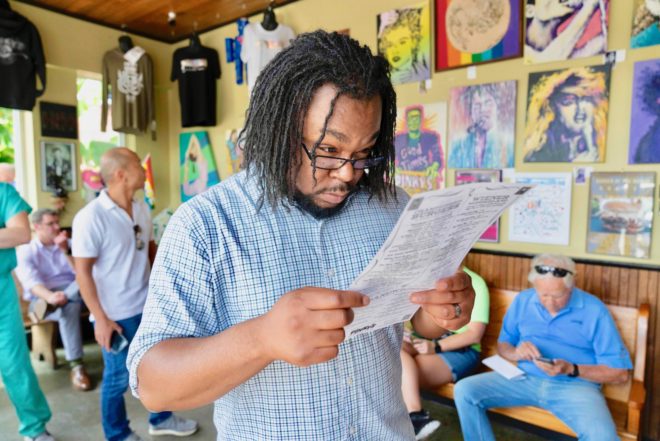
Are you considering LASIK surgery? You probably have a long list of questions about the procedure. One of the most common questions is, “Will l still need glasses after LASIK surgery?” The truth is this depends on several factors, and it's important to discuss them with your surgeon before undergoing vision correction surgery.
LASIK eye surgery is a very popular procedure that has been in use for over twenty years in the United States. Originally, LASIK was only able to correct myopia (nearsightedness), but advancements in technology and techniques have enabled surgeons to now correct farsightedness, astigmatism and age-related farsightedness, called presbyopia.
The most common reason people desire LASIK surgery is that they are tired of relying on glasses and/or contacts, which can be cumbersome, inconvenient, uncomfortable and expensive. People with nearsightedness often yearn for the day they wake up and can read the alarm clock without squinting. Meanwhile, patients who are over the age of 40 with presbyopia and need dreaded reading glasses would love to read a menu and see their food without reaching for glasses. LASIK is highly advanced and can correct many vision issues, but what most people really want is to enjoy the simple things in life without glasses and/or contacts. Not to mention the financial benefit of no longer needing to purchase contacts, storage, cleaning solutions and, of course, glasses!
At Providence Eye & Laser Specialists, our goal is always to provide our patients with complete vision correction, whether it be with LASIK, EVO ICL or PRK, eliminating the need for glasses or contacts. We take great care to determine if a person is a good candidate for LASIK or a LASIK alternative by conducting a thorough medical examination. For patients who are approved by our surgeon Dr. Nunnery, we expect the procedure to completely correct their myopia, hyperopia and/or astigmatism. For patients who are over the age of 40 who have presbyopia, or age-related farsightedness, we may offer the option of monovision. With monovision, patients can eliminate the need for glasses and contacts for about 95% of their normal daily activities.
All procedures, including LASIK, have parameters and limitations. These include but are not limited to:
While LASIK, EVO ICL and PRK can significantly improve vision, they don’t stop the aging process. As we age, most of us will experience age-related eye issues that will impair vision on some level. The first stage typically occurs in our 40s with presbyopia, the need for reading glasses. The next stage is usually in our 60s with the onset of cataracts, which begin to make our vision cloudy. Neither of these vision issues is related to LASIK surgery.
For over twenty years, Providence Eye & Laser Specialists has helped tens of thousands of people gain visual freedom from glasses and/or contacts by correcting their vision with LASIK, EVO ICL and PRK. Curious about what our past patients have to say? Read some of our patient testimonials.
These stories are the norm at Providence Eye & Laser Specialists. Thanks to our thorough consultation process that is always conducted by your surgeon Dr. Nunnery, we can give our patients what they never thought possible — their vision is completely corrected. No need to worry about if you will still need glasses after LASIK surgery!
The key to having full vision correction is to first be evaluated by a qualified vision correction surgeon and deemed an ideal candidate. Your consultation should always be done by the surgeon who will perform your procedure. On average, your consultation should take approximately 2-2.5 hours to complete all of the diagnostic testing, including dilation of the eyes. Your surgeon should also verify stability by checking your prescription, both un-dilated and dilated, and mapping your corneas. This allows the surgeon to make a safe recommendation on how to best correct your vision.
Schedule your complimentary consultation with Dr. Nunnery today and enjoy life free from glasses and/or contacts.